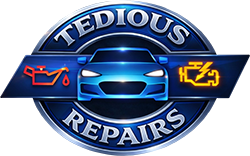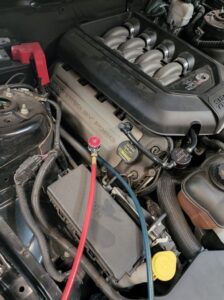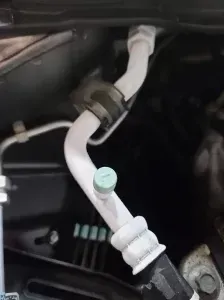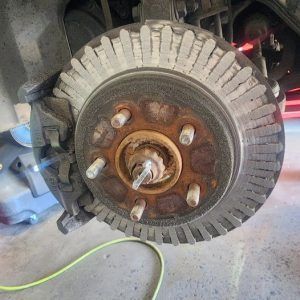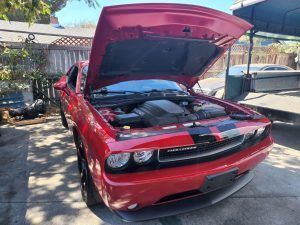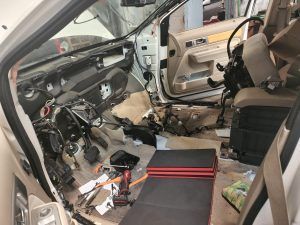Is Your Car’s AC Failing? It Might Be The Evaporator Core
Is your car’s AC not cooling like it used to? Don’t ignore the signs, as it might be a failing evaporator core causing the problem.
The evaporator core plays a crucial role in your car’s air conditioning system, responsible for cooling the air before it enters the cabin. When it starts to fail, you’ll notice a decrease in cooling efficiency, reduced airflow, and even strange smells or water leaks inside your vehicle.
There are several potential causes of evaporator core failure, including clogged or dirty filters, refrigerant leaks, or electrical issues.
Addressing a failing evaporator core promptly is essential to prevent further damage to your AC system and avoid costly repairs down the line.
While there are steps you can take to address the issue yourself, such as cleaning or replacing filters, seeking professional help is highly recommended. Trained technicians have the expertise and specialized tools to diagnose and repair evaporator core problems accurately.
Don’t let a failing evaporator core leave you sweating this summer—get it fixed and enjoy the cool comfort of your car’s AC again.
Key Takeaways
– Signs of a failing evaporator core include decreased cooling efficiency, reduced airflow, strange smells, and water leaks.
– Promptly addressing a failing evaporator core can prevent further damage and costly repairs.
– Regular maintenance, such as replacing the cabin air filter and scheduling routine inspections, can help prevent evaporator core failure.
– Seeking professional help for accurate diagnosis and repair is recommended to avoid potential harm and ensure optimal AC system performance.
Signs of a Failing Evaporator Core
Is your car’s AC failing? It might be the evaporator core! Don’t let the summer heat leave you sweating and uncomfortable. The evaporator core plays a crucial role in your car’s AC system, and when it starts to fail, it can cause a variety of common symptoms.
One of the most noticeable signs of a failing evaporator core is reduced cooling capacity. If you find that your car’s AC isn’t blowing cold air as it used to, it could be a clear indication of a problem with the evaporator core.
Another symptom to look out for is a foul odor coming from the vents. This smell is often caused by mold or mildew growth on the evaporator core.
Additionally, you may experience water leaks inside your car, especially near the dashboard area.
Regular maintenance is key to preventing evaporator core failure. Keep your AC system clean by replacing the cabin air filter regularly and scheduling routine inspections. By taking these maintenance tips seriously, you can avoid potential causes of evaporator core failure, saving you time and money in the long run.
Now, let’s explore the potential causes of evaporator core failure and how to address them.
Potential Causes of Evaporator Core Failure
Experiencing issues with your vehicle’s cooling system? Chances are, those frustrating problems could be traced back to the culprit known as the evaporator core. The evaporator core plays a crucial role in the air conditioning system by removing heat from the air that passes through it. When it fails, the consequences can be quite inconvenient. But what causes the evaporator core to fail in the first place?
To help you understand the potential causes of evaporator core failure, let’s take a closer look at the table below:
| Common Symptoms | Potential Causes | DIY Troubleshooting |
|——————|——————|———————|
| Weak airflow | Clogged core | Check and clean the air filter |
| Strange odor | Mold or bacteria growth | Use an antibacterial cleaner to sanitize the system |
| Leaking coolant | Corroded or damaged core | Inspect for visible signs of damage and replace if necessary |
As you can see, there are several common symptoms of evaporator core failure, each with its own potential cause and corresponding DIY troubleshooting step. By identifying these symptoms and taking appropriate action, you can address the issue promptly and avoid further damage to your car’s cooling system.
Transitioning into the subsequent section about steps to address a failing evaporator core, it’s crucial to understand the importance of timely intervention in order to prevent further complications.
Steps to Address a Failing Evaporator Core
Take action now to prevent further damage and discomfort by addressing the failing evaporator core in your vehicle’s cooling system. If you suspect that your car’s AC is failing and the cause is the evaporator core, there are steps you can take to address the issue.
One option is to opt for evaporator core replacement, which involves removing the old core and installing a new one. This can be a complex and time-consuming process, as it requires disassembling the dashboard and accessing the core. If you’re confident in your mechanical skills, you may consider a DIY evaporator core repair. However, keep in mind that this task requires specialized tools and knowledge, and any mistakes could lead to further damage. It’s crucial to carefully follow the manufacturer’s instructions or seek professional help if you’re unsure.
Addressing a failing evaporator core promptly is essential to avoid additional problems and discomfort. Failure to do so can result in reduced cooling efficiency, foul odors, and even damage to other components of your vehicle’s AC system.
Importance of Timely Repair
Don’t underestimate the importance of promptly repairing the failing evaporator core to prevent further damage and discomfort in your vehicle’s cooling system. Neglecting to address this issue can have significant consequences for both the cost of repairs and the overall performance of your car.
Here’s why timely repair is crucial:
– Cost of repairs: Ignoring a failing evaporator core can lead to more extensive damage to your car’s AC system. This can result in costly repairs, including replacing the entire AC unit. By addressing the issue promptly, you can avoid these unnecessary expenses.
– Impact on car’s performance: A failing evaporator core can hinder the efficiency of your vehicle’s cooling system. This can lead to inadequate cooling and discomfort during hot weather. Additionally, the strain on the AC system can cause other components to work harder, potentially affecting the overall performance of your car.
– Decreased energy efficiency: A faulty evaporator core can lead to increased energy consumption as the AC system struggles to cool the air effectively. This can result in reduced fuel efficiency and higher operating costs.
– Comfort and convenience: Repairing the evaporator core promptly ensures that you can enjoy a comfortable and cool driving experience. It prevents the inconvenience of having to endure hot and stuffy conditions inside your vehicle.
Addressing the failing evaporator core in a timely manner is crucial to maintaining the cost-effectiveness and performance of your car’s cooling system. Seeking professional help is the next step in resolving this issue.
Seeking Professional Help
Finding a skilled technician can make all the difference in restoring the cool comfort you crave. When it comes to diagnosing and repairing your car’s AC system, seeking professional help is essential. DIY AC repairs may seem like a cost-effective option, but without the right knowledge and tools, you could end up causing more harm than good.
One of the common misconceptions about car AC systems is that they’re simple to fix. However, the truth is that they’re complex and require specialized expertise. A professional technician has the training and experience to accurately diagnose the issue with your evaporator core and recommend the most effective solution. They have access to advanced diagnostic equipment, which allows them to pinpoint the exact problem and avoid unnecessary repairs.
Moreover, attempting DIY repairs can lead to further damage, resulting in higher repair costs in the long run. It’s important to understand that the evaporator core is a delicate component of your car’s AC system. Mishandling or improper installation can cause leaks, reduced cooling efficiency, or even total failure of the system.
By relying on a skilled technician, you can have peace of mind knowing that your car’s AC system is in capable hands. They won’t only fix the current issue but also ensure that your AC system is functioning optimally. So, don’t hesitate to seek professional help when it comes to your car’s AC repairs.
Frequently Asked Questions
How can I tell if my car’s AC is failing due to a faulty evaporator core?
To troubleshoot a faulty evaporator core in your car’s AC system, look for signs such as weak airflow, strange odors, or a lack of cold air. Additionally, if you notice leaks or hear unusual noises, it may indicate a problem with the evaporator core.
Are there any common signs or symptoms that indicate a failing evaporator core?
Common signs and symptoms of a failing evaporator core in your car’s AC include weak airflow, warm air blowing from vents, strange odors, and water pooling on the floor.
What are the potential causes of evaporator core failure in a car’s AC system?
The potential causes of evaporator core failure in a car’s AC system include refrigerant leaks, clogged or dirty air filters, improper maintenance, and excessive moisture buildup. Signs and symptoms may include weak airflow, strange odors, and reduced cooling performance.
Can I attempt to fix or replace the evaporator core myself, or should I seek professional help?
For the DIY evaporator core replacement, it is recommended to seek professional help. The benefits of professional assistance include expertise, proper tools, and ensuring a correct installation, which can prevent further damage and ensure optimal performance.
Why is it important to address a failing evaporator core in a timely manner?
It is important to address a failing evaporator core in a timely manner to prevent further damage to your car’s AC system. Ignoring the issue can lead to decreased cooling performance and potential compressor failure.
Conclusion
In conclusion, if you notice your car’s AC system isn’t functioning properly, it’s crucial to consider the possibility of a failing evaporator core. Pay attention to signs such as weak airflow, strange odors, or warm air blowing from the vents.
Several factors can contribute to evaporator core failure, including refrigerant leaks and clogged filters. Promptly addressing this issue is essential to maintain a comfortable driving experience.
For a precise diagnosis and efficient repair, it’s advisable to seek professional assistance.

